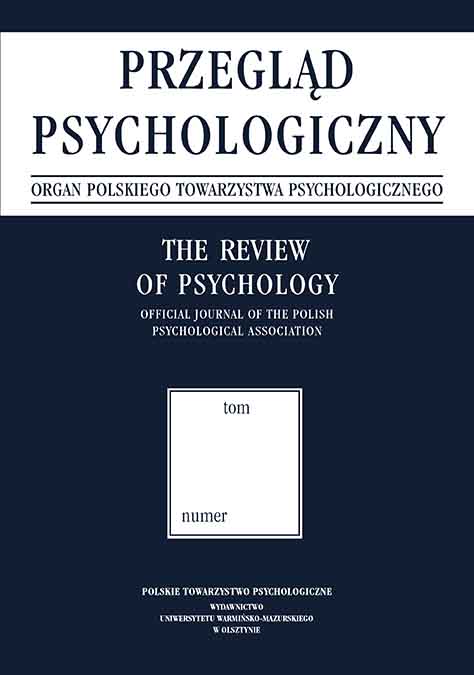Psychological Assessment of Children at School
Ethical and Legal Perspectives
Psychological Assessment of Children at School
Ethical and Legal Perspectives
Author(s): Dorota BednarekSubject(s): School education, Educational Psychology, Health and medicine and law, Pedagogy
Published by: Wydawnictwo Uniwersytetu Warmińsko-Mazurskiego w Olsztynie
Keywords: professional ethics; school psychologist; informed consent for psychological services; ethical dilemma; psychological services for children;
Summary/Abstract: Aim The aim of this article is to analyse psychological assessments of children at school in the context of professional ethics and legal regulations. A hypothetical example (based on fact) of typical psychological services in education is discussed. The focus is on both inappropriate and good practices in the context of Polish legal regulations and ethical values in the psychological profession. Theses Psychological screening is an essential service provided by school psychologists in Poland. The aim of psychological screening is to assess children’s educational needs, emotional development, and well-being, and to implement adequate interventions that embrace the needs of individual students, peer groups, and the organizational climate. Appropriately processed information gained through psychological screening provides a basis for well-tailored educational plans, counteracts negative group processes, and supports the social and emotional development of children.However, the acquisition of sensitive information about students and their social environment is a process that must be carried out with respect for privacy and integrity, and in accordance with the legal regulations and professional ethics. This is a highly sensitive issue because school psychologists play complex roles and establish relationships with various stakeholders, including students, parents, teachers, and school principals. Conclusions Psychologist should respect the client’s rights. In the process of accessing private information, a psychologist gains the patient’s trust, provides comprehensive information about the purpose and scope of the assessment, and obtains the patient’s informed consent. Students should be aware that they have the right to withdraw their consent, even if it was given by the parents. Client’s confidentiality implies that students and their parents should be informed whether sensitive information would be shared with other stakehold- ers, such as teachers. Psychologists should respect the students’ and parents’ right to receive feedback and the results of the assessment. Adherence to these principles shows respect for students’ integrity and increases the quality of psychological services at school.
Journal: Przegląd Psychologiczny
- Issue Year: 65/2022
- Issue No: 4
- Page Range: 85-94
- Page Count: 10
- Language: English

